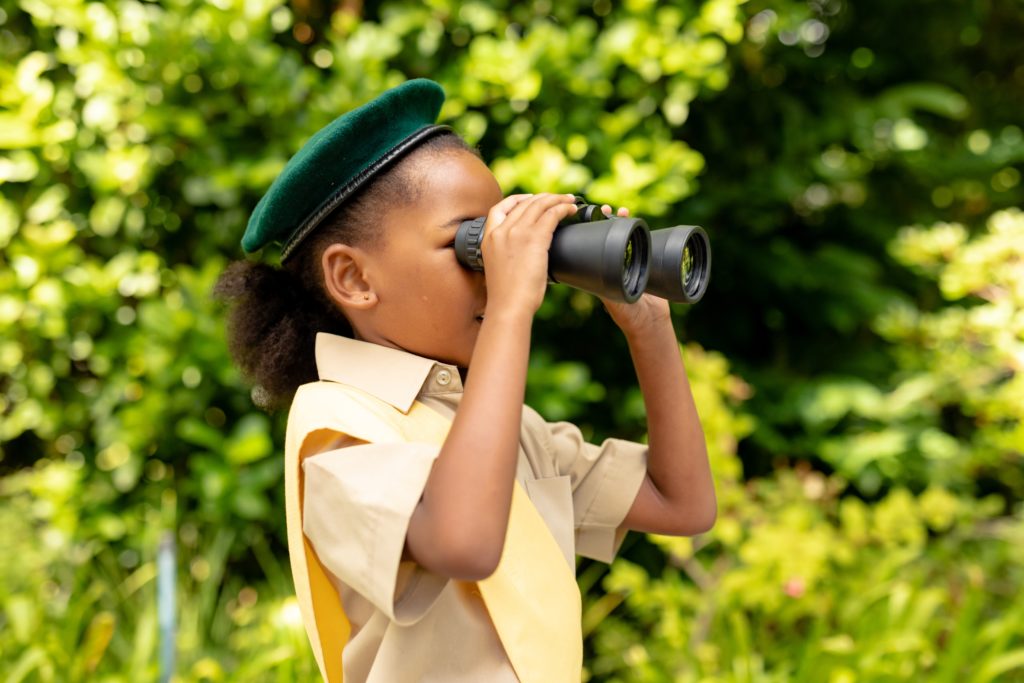Teachers and parents are often the ones who identify a child’s talents at an early age. However, there are many cultural and ethnic differences in parenting styles around the world, so it is not possible to have a one-size-fits-all approach to helping all children succeed. Nevertheless, it is important for society as a whole to support and nurture children’s talents, as it is not only beneficial for the children and educators, but for the whole community.
Nurturing children’s potential from an early age
Experts make a difference between gifted and talented children. According to the Department of Education in the UK (DfE), “gifted learners are those who have particular academic abilities, whilst, talented learners are those who have particular abilities in the creative arts (such as music, art, and design, drama, dance) or PE” (The Good Schools Guide, n.d.). There is no unique measurement system to determine whether a child is gifted, or talented. However, guardians and teachers can effectively determine children’s talents through active observation.
Thanks to the parents’ insights, educators are able to better understand the level of children’s emotional maturity. Emotional intelligence forms a large part of children’s future lives. This psychological advantage makes children appear older and wiser, as they know how to control their emotions. These children find it easier to express themselves, namely their talents and interests.
The 2016 Nobel Prize winner, Bernard L. Feriga, is a “firm believer in that all children have a talent, that just needs to be found and encouraged” (The Nobel Prize, 2020). The professor himself grew up in a village with very limited resources. He credits his teachers and parents for stimulating him. Growing up in a safe environment, free of war, violence and poverty, allows children to start asking important questions and grow more imaginative (The Nobel Prize, 2020).
How to help children succeed in school
On the other hand, exceptionally talented children might find it difficult to cope with the pressure when they are not recognized as top performers. In cases like these, building resilience through communication and emotional management strategies can make all the difference for the child. It is important to teach the children to acknowledge their frustration.
Teachers have a unique opportunity to observe child’s behavior in a classroom. School is the place where children get to express their interests through inventing, searching, and playing. Taking into consideration that every child has a particular talent, educators have an important task of recognizing and nurturing the special trait. Allowing children to freely express themselves through play is by far the best way to spot their natural talents (Oxford Schools, n.d.).
Talented children will oftentimes question authority and find it challenging to blend in the standardized classroom. This is when parents and teachers should engage in regular conversations with the child (Raising Children Network, 2021). Children who don’t fit in find it hard to form relationships with others, which can consequently lead to behavioral problems. Involving a therapist in early intervention can help children gain social competence (Wingert P, 1999).
Setting up the child for success
Quite contrary to popular opinion, children don’t have to be involved in a myriad of activities to become creative. More often than not, parents tend to put pressure on their children by keeping their schedules full. Giving children space to express their talents can be achieved through a more gentle approach. By using subtle compliments and pointing out the child’s good traits, parents help them to gain confidence in themselves (Kaufman J, 2021).
It is important for parents to balance out the rewards ratio, as children might associate being creative or talented with being awarded. The goal is to entice the child to naturally become more curious to discover the world around them. With proper parental guidance, children should experience risk-taking and routine changes in everyday life. These characteristics have proven to be a great indicator of children’s future resourcefulness and talent development (Kaufman J, 2021).

The research shows that academic performance is not a good indicator of talent or success in life. It has been proven that genes play a more important role in a child’s character. Children who achieved extraordinary results were able to activate the right genes and also demonstrate persistence in pursuing their goals.
“No matter what the initial characteristics of the individuals, unless there is a long and intensive process of encouragement, nurturance, education, and training, the individuals will not attain extreme levels of capability.”
– Berry P, 2014
Adults as role models
The prolific Austrian composer, Wolfgang Amadeus Mozart’s exemplary childhood showcases the importance of parents’ involvement in nurturing their children’s talents. With the help of his father, Mozart started playing piano at the age of three, which further inspired him to devote his life to music and compose hundreds of songs in his short life.
Most child development experts agree that talent is not an innate attribute, but a man-made construct with proper guidance (Hood L, 2019). Just like adults at work, children also need a role model in early childhood. Psychologists believe that children can learn anything if all the conditions are met.
“Those appropriate conditions include five things: an early start, expert instruction, deliberate practice, a center of excellence, and singleness of purpose.”
– Hood L, 2019
It is estimated that most of the children who excelled in their future roles were actively encouraged by their parents as early as the age of two. Parents and teachers should offer guidance to the little ones to ignite their curiosity and interest. Children are impressionable and adaptable, which is why they need adult help in order to realize their potential.
Giving children space to be themselves from an early age is just one part of the equation. Guardians also have the important task of deliberately challenging their children to get out of their comfort zone in order to nurture their talents and direct their energy (Hood L, 2019).
Humanium’s children around the world
As a renowned NGO dedicated to helping children, our methodology is designed by a team of experts including human rights defenders, life coaches, psychologists, leadership graduates, and therapists. Our focus is on empowering children to reach their full potential and achieve their goals within their communities.
Through our work, we have had the opportunity to initiate and lead numerous important projects, like the most recent ones: the emergency Covid-19 project in Rwanda and the Child Rights Workshop in India. These projects have allowed us to collaborate with educators and provide children with the support they need to not only cope with trauma, but also to understand their own worth and value.

If you want to support the most vulnerable children and help us give them a fair chance to succeed in life, please consider donating, sponsoring a child, or becoming a volunteer. Every little contribution matters, and together, we can create a significant impact in the long term. Our ultimate goal is to help children realize their dreams and reach their full potential.
Written by Lidija Misic
Bibliography:
Barry P (2014), Psychological abilities essential for developing talent in children. Retrieved from Human Performance Science at https://humanperformancescience.co.uk/psychological-abilities-essential-for-developing-talent-in-children/, accessed on January 5, 2023.
Hood L (2019), 5 ways to develop children’s talents. Retrieved from The Conversation at https://theconversation.com/5-ways-to-develop-childrens-talents-111041, accessed on January 4, 2023.
Kaufman J (2021), How to Nurture Creativity In Your Kids. Retrieved from The Neag School of Education at https://education.uconn.edu/2021/10/27/how-to-nurture-creativity-in-your-kids-2/, accessed on January 4, 2023.
Oxford Schools (n.d.), Children’s Talents and Attitude. Retrieved from https://oxfordschools.edu.jo/blog/childrens-talents-and-attitude, accessed on January 4, 2023.
Raising Children Network (2021), Behaviour, emotions, social development: gifted and talented children. Retrieved at https://raisingchildren.net.au/preschoolers/play-learning/gifted-talented-children/behaviour-social-development, accessed on January 4, 2023.
The Good Schools Guide (n.d.), Educating the gifted child. Retrieved from https://www.goodschoolsguide.co.uk/choosing-a-school/educating-the-gifted-child, accessed on January 4, 2023.
The Nobel Prize (2020), Bernard Feringa: “Every kid has a talent that we should encourage. Retrieved at https://www.nobelprize.org/bernard-feringa-every-kid-has-a-talent-that-we-should-encourage/, accessed on January 6, 2023.
Wingert P (1999), Kids Who Don’t Fit In. Retrieved from Newsweek at https://www.newsweek.com/kids-who-dont-fit-163360, accessed on January 6, 2023.


